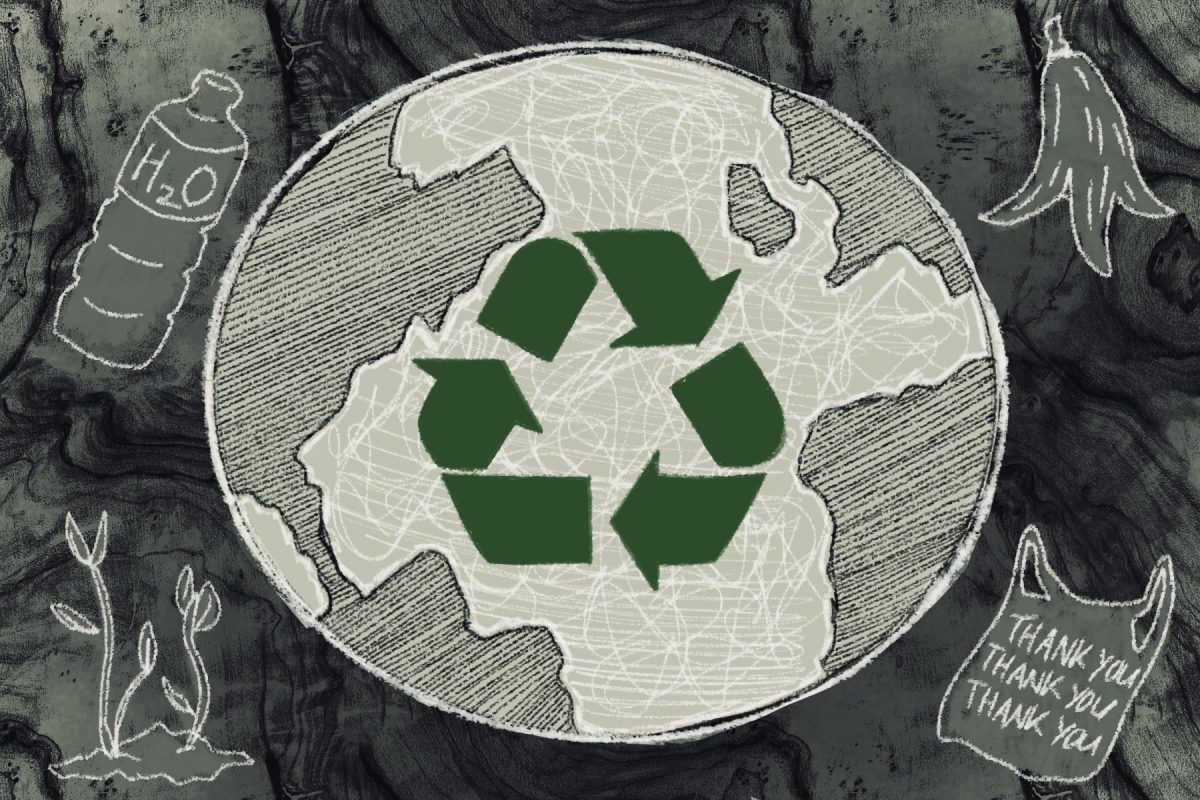Climate change is becoming an increasingly larger issue, and the well-being of the environment influences businesses, consumers, industry and quality of life. Amid this adjustment, students, future employees and consumers must stay informed on how climate change affects our world.
“Understanding the impact of the goods and services that you’re consuming, what the impact of those goods and services are on the environment, is going to become more and more essential as we face global challenges and start to see shifts in our food production and other economic sectors,” said Daniel LeVine, assistant professor in the Department of Geography and the Environment.
As consumers, we must understand where the products we consume come from. With new restrictions and climate-related emergencies, the abundance of any given product could shift.
A general knowledge of the environment is far more important to every career field than we may think. As every industry changes to adjust to the climate, those changes will affect the way each industry and its customers go about business.
“I’m optimistic and seeing certain trends in Texas, we’ve been seeing more and more renewable energy coming online and electric cars are becoming more prevalent and available to consumers,” LeVine said. “There are certain trends that are encouraging, but I still think things could be better and moving a little bit more quickly.”
Despite its importance, conservation and sustainability courses are not a required course. It is up to students to incorporate these courses into their schedules. Choosing to include these courses could help students find better employment opportunities.
“We’re seeing a lot of companies hiring people to arrange for their employees to be able to give back in some way and a lot of those have an environmental focus,” senior career coach Amira Sounny-Slitine said.
Adapting to the worldwide adjustment to climate change, the demand for employees with a background in sustainability and conservation is rising. In 2021, chief of sustainability job positions tripled worldwide. Elsewhere, the demand for environmental lawyers is increasing, and the need for chemical engineers to help limit harmful chemical output is undeniable. Companies are seeking experts to stay within regulations and maximize profits.
From a career perspective, taking a sustainability or conservation course allows students to better understand corporate impact, developing a unique and marketable skill.
“You gain a lot of transferable skills,” Sounney-Slitine said. “Even if you don’t end up going into a field that’s exactly related to environmental science, you still have such a vast skill set that you’re gaining with your courses, like analytical skills, critical thinking, things like that, and you can translate that into a lot of different types of roles.”
On a more personal level, a bare minimum understanding of the issue can help us realize why the world around us is changing and how it can affect our lives.
“I think not having an understanding of what impacts we’ll be facing, whether that’s things like sea level rise, or more heatwaves, or more intense weather events, can leave anyone vulnerable to these risks if they’re not able to prepare and kind of incorporate adaptability and resilience,” LeVine said.
Taking a conservation or sustainability course has a significant amount of value and relevance in student life. Even though you may not expect it, that information could benefit your career directly.
Meltzer is a writing and rhetoric freshman from San Antonio, Texas.















